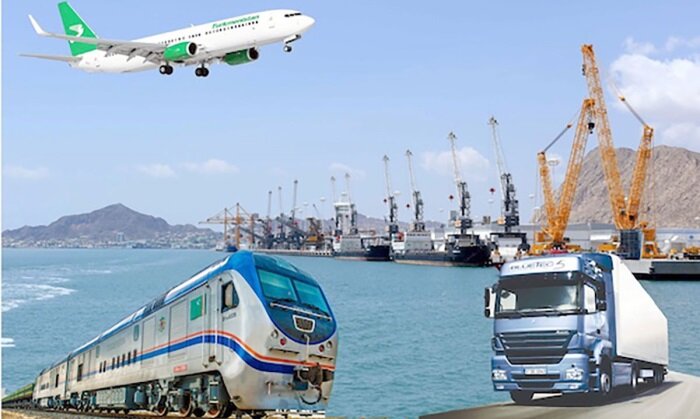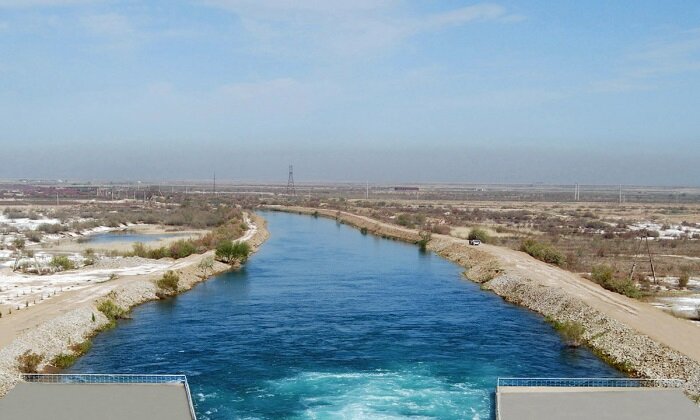The interlocutor of the editorial staff also spoke about the major steps towards economic growth under the leadership of Nursultan Nazarbayev.
 In late April, ex-President of Kazakhstan Nursultan Nazarbayev delivered a speech at the session of the Assembly of People of Kazakhstan. Elbasy spoke about the development of the country and economic growth - a quite traditional speech. However, a number of sceptical experts drew attention to the time component – Nazarbayev described what the country had achieved and how difficult it was in the 1990s when Kazakhstan gained independence.
In late April, ex-President of Kazakhstan Nursultan Nazarbayev delivered a speech at the session of the Assembly of People of Kazakhstan. Elbasy spoke about the development of the country and economic growth - a quite traditional speech. However, a number of sceptical experts drew attention to the time component – Nazarbayev described what the country had achieved and how difficult it was in the 1990s when Kazakhstan gained independence.
The critics of the ex-President believe that a lack of major economic achievements lie behind the comparison of these periods. In their opinion, there has been no real economic growth for more than 10 years. Some of them think that Nazarbayev ‘does not give free rein’ to current President Kassym-Zhomart Tokayev to enact liberal reforms. The CentralAsia.news editorial staff interviewed an independent expert Yevgeny Kudryats. He expressed his opinion on two main aspects: “how it was then” and what the current economic realities of Kazakhstan are.
Difficult 1990s and government measures
The interlocutor reminded that in the early 1990s, Kazakhstan, like other former republics of the USSR, experienced a severe economic crisis. In 1992-1995, GDP fell by 18.7%, agricultural output by 28.8% and industrial output by 32%, as compared with 1991. Kudryats emphasised that this was a result of the collapse of the Soviet Union and the interruption of economic relations among the former Soviet republics.
The authorities of Kazakhstan began to take the first real steps to improve the situation in 1993. The expert reminded that the programme of urgent anti-crisis measures and drastic social and economic reforms was adopted in the same year.
“This allowed maintaining political stability in the Republic, introducing a national currency, resolving the supply of consumer goods to the people Kazakhstan and switching from an administrative-command economy to a market one,” our interlocutor noted.
At the second stage (1998-2006), the Kazakhstan-2030 Development Strategy was adopted. It aimed to ensure economic security and create a favourable investment environment.
In 2003, two major documents that determined economic growth and development of Kazakhstan for the period until 2015 were adopted. These are the Industrial and Innovative Economic Development Strategy of Kazakhstan for the period until 2015 and the state programme for the development of oil and gas fields in the Caspian Sea Basin for the period until 2015.
“Nursultan Nazarbayev said, “The oil needle is not a curse, but a blessing that we have these resources”. However, an industrial and innovative programme was launched to “get off the raw material needle” in 2009. I believe that Kazakhstan has failed to cope with this task”, Kudryats said.
Stagnation and two presidents
Our interlocutor noted that Kazakhstan’s financial sector had been facing stagnation in the past 10 years.
“This results from overregulation of the financial sector. Moreover, the ‘mega-regulator’, which is focused on regulation rather than on financial markets development, poses a great danger,” the expert concluded.
Kudryats dwelt on the social and economic development of the Republic under Tokayev. He spoke about the initiatives of the current President, which were of particular significance for the country.
The expert mentioned the health sector the first. On the instructions of Tokayev, all those in need will receive assistance. For this purpose, social rehabilitation centres will open throughout the country. Assistance will be provided to persons with disabilities and children from low-income families. “They will receive a special social package, which includes free school meals and school transport subsidies”, Kudriats said.
Under Tokayev, changes are to take place in the pension system. Mandatory contributions that must be paid to the workplace pension scheme by employers will be set in 2023, not in 2020, as planned.
Speaking about the influence of the elite that appeared under Nazarbayev, the expert said it needed to be replaced gradually. In his opinion, this needs to be done in a number of other former countries of the USSR. Kudryats noted that this process would take much effort and time, adding that Nazarbayev was not interested in creating problems for Tokayev.






